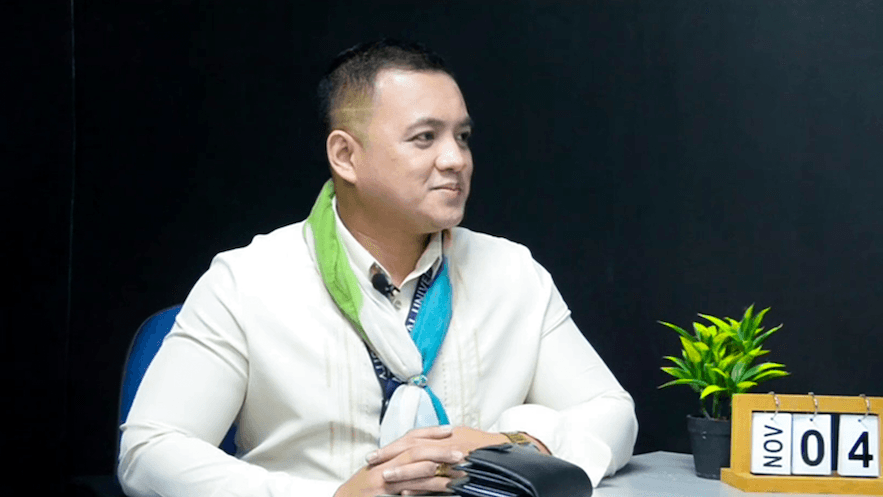PAMPANGA, Philippines – Roger was only 18 years old when he used to end his day betting at least P20,000 on multiple gambling sites. There was a time he even blew P120,000 on gambling in just a week. On the other hand, Iñigo, who just turned 21, considered himself on the brink of a gambling addiction during the start of the pandemic, when he was only 16.
These two young individuals agreed to be interviewed by Rappler on the condition we do not reveal their real names.
Republic Act No. 9287, states an individual has to be at least 21 years old to play in casinos, which is likewise the same standard applied to legal online gambling sites in the country. Yet, Roger and Iñigo said it was easy to conceal their identities and login to these online betting sites. Though minors, they were able to gamble on these sites. Inigo said: “Sa online, madali lang. Madali lang pekehen kung sino ka, kung taga saan ka, o kung ilang taon ka na.” (It’s easy to fake your identity, location, and age in online sites.)
Their gambling habit started from peer pressure and social media influence. Inigo said he was enticed by streamers which said you can win as much as millions of pesos with just small bets. He was convinced he could pull that of. Roger, on the other hand, also blamed peer pressure. Another factor, he said was the boredom brought by the lockdowns during the pandemic.
These habits were also unintentionally funded by their parents through the allowances they received. Iñigo said he would be extra thrifty, even foregoing everyday necessities, just so he could enjoy longer gambling time after school. He recalled: “Kumakain naman ako pero tipid na tipid. And sa pag-uwi ko, naglalakad na lang ako”. (I would still eat but I would be very frugal. And I would just walk going home.)
As they looked back to those days, the two differed in their conclusions. Roger said: “May nararamdaman ka pong parang “depressed” ka… mga sanang hindi mo na lang tin-ry ganun.” (You would somehow be depressed and wish that you didn’t try it). He said he wished he could get back his hundred thousand pesos of losses. Meanwhile, Iñigo, whose losses was about P5000, has no remorse and was glad to win even something higher than his bet for his other vices.
Social experiment
Rappler conducted an unscientific social experiment outside 3 different universities around Angeles and Mabalcat City in Pampanga. We asked 30 random students: “Handa ka bang i-sugal ang P50 mo para sa box na ito?” (Are you willing to gamble P50 for this box?)
In the experiment, students near the universities were offered a mystery box in exchange for P50. Twenty-two out of 30 students took the risk and bet their money, later realizing that the box was empty. Despite the disappointment of those who gambled, most of them said, “okay lang, nag risk ako eh”. (it’s okay, I took the risk).
This social experiment mirrored the youth’s susceptibility to gambling and, surprisingly, the lack of guilt or regret despite losing money. One student said: “I like the thrill, YOLO.” Most took the bait for laughs among their barkada.
Students from a specific university said they were influenced by social media where “experiments” like these, which dangled possible high rewards, proliferated. Another student said: “Mostly lahat ng nag a-advertise ng ganoon (gambling), nanalo.” (Mostly all advertisers show their wins in gambling). Another added: “Siguro dahil sa social media na rin po. Nakikita po nila sa ads na nau-uso po siya. Parang takaw mata po kasi syempre pag may nakikita na easy money.” (Maybe because of social media. They see that it has become a trend in advertisements. It catches their when they see easy money)

A psychological explanation
According to Argel Masanda, a registered psychometrician, guidance counselor and a full-time professor in Pampanga, the youth are naturally more susceptible to gambling and taking risks.
Gambling has a high chance of turning into an addiction. He said, addiction is rooted from the inability of the brain to be satisfied. “Addiction is the uncontrollable desire to to do something. It’s not that hindi mo kaya, it’s actually physiological…it happens kapag ang reward system natin sa brain ay nagka-problem na, specially the limbic system.”
(Addiction is the uncontrollable desire to do something. It’s not that you cannot stop it, it’s actually physiological…it happens when the reward system of the brain has a problem, specially the limbic system.)
This type of addiction has been studied to cause high distortion, dysfunction, and social danger that registered it to be a disorder in the DSM-IV or Diagnostic and Statistical Manual of Mental Disorders. These kinds of risks are prone to the youth with undeveloped prefrontal cortex, said Masanda. That part of the brain is responsible for decision making, which is expected to mature around the age of 25.
While the youth are aware of the ongoing malaise caused by gambling in the country, there is a lack of information on how it affects an individual. Masanda said part of the problem is that gambling is now normalized in society.
Multiple advertisements and billboards are seen enticing the public. Samuel Galang, a registered guidance counselor agrees that social media plays a big part as to why gambling is a “normal thing” to most teenagers. Five students from the experiment also fell into the “trap” hoping to win prizes as big as a brand-new Iphone or P5,000 as seen in social media platforms such as Tiktok.

Galang said there is a need for universities to look into this issue. “Parang hindi masyadong nabibigyan ng pansin. Pag sinabi kasi nating addiction more on sa substance, sa drugs, sa alcohol. Kaya kung makikita natin, even yung government hindi nila alam kung paano sugpuin itong problema na ‘to.”
(It seems like it’s not getting enough attention. When we talk about addiction, it’s more focused on substances, drugs, and alcohol. That’s why, if we look at it, even the government doesn’t know how to address it.)
Masanda and Galang have also observed that this addiction’s effect does not only affect the financial aspect, but also causes depression, hallucination, and even anxiety, as those addicted try hard to get their wins.
“…Pag nanalo ka kasi, hahanap hanapin mo yung feeling na yun.” (“…Because when you win, you’ll keep seeking that feeling.) Roger reminisces on the feelings that made him fall into the depths of gambling, completely disregarding its consequences. This effect on the people poses a bigger problem to society when it is the youth who are involved.
Both Inigo and Roger admit they fell into that rabbit hole of gambling. Now, they talk about it candidly, fully aware that it was an addiction. And if one wants to stop this disorder, Masanda said: “First step to actually preventing it is to recognize that you might be (an addict). – Rappler.com
Aya Ranas is a 2nd year Communication student and a scholar at National University Clark, Pampanga. An editor-in-chief and founder of the Nationalian Clarion, she is also an Aries Rufo Journalism Fellow of Rappler for 2024.